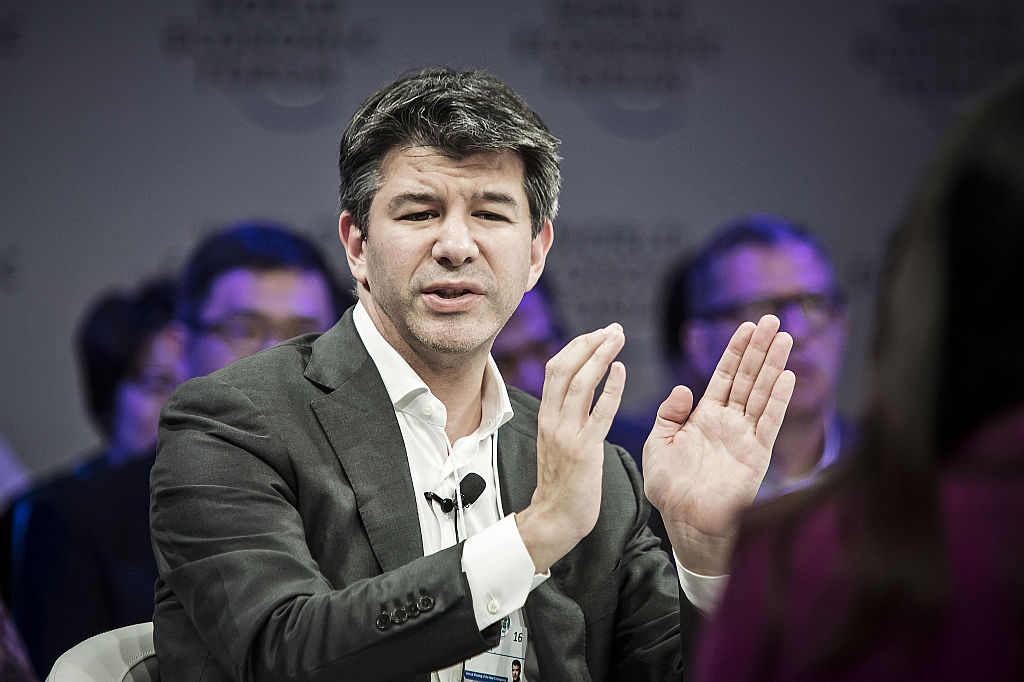Uber unsealed former CEO Travis Kalanick’s deposition in the Uber versus Waymo self-driving car technology case over the weekend. Kalanick, who was deposed for more than six hours last month, spoke about when he learned that Anthony Levandowski, who formerly worked at Google, downloaded documents related self-driving technology.
“The deposition yet again confirms that Uber was focused on building its technology from the ground up. Uber never wanted any Google material, and took steps to prevent any such material from ever coming to Uber,” an Uber spokesperson told TechCrunch.
Waymo’s suit alleges Uber knew about these documents at the time when Uber acquired Levandowski’s self-driving trucking startup Otto. In Kalanick’s deposition, he says he did not have any knowledge of the documents until shortly Waymo first filed the complaint in February.
“I was pretty serious with him about making sure that these files had not and will not make it to Uber,” Kalanick said in his deposition. He went on to say that, “And I wanted to make it absolutely clear that no files of any kind from anybody’s previous employer make it to Uber.”
While Levandowski was still employed at Uber, Kalanick at one point directly asked him if any of the files made it to Uber, to which Levandowski said no.
In his deposition, Kalanick said Levandowski was expecting a bonus at Google and downloaded the documents to make sure he’d get that bonus. The deposition, which is nearly 200 pages long, also touches on whether or not Kalanick thought what Levandowski was “improper.” Kalanick said yes, to which he was then asked why he didn’t fire Levandowski at that point.
“I was really hopeful that he would cooperate and tell the Court the facts of the matter, cooperate with our investigation,” he said. “And that was part of what this discussion was about, was just make the declaration, testify. And it may be that I was holding onto that possibility, trying to — trying to get him to cooperate with the Court, with our investigation internally. And you know, it was F’ing stupid. It was — it — it — yeah. It it just felt like if he could — if he could just say what he did and why, and that — if you just cooperate, the would be great.”
Levandowski, of course, has not cooperated. He very early on in the case invoked his Fifth Amendment rights against self-incrimination.
Another key element of this case is Alphabet CEO Larry Page, who was seemingly unprepared in his deposition last month. In Kalanick’s deposition, he describes a call between him and Page from October 2016. According to Kalanick, they spoke about flying cars as well as driverless cars and potential partnership opportunities. Page was not very interested in partnering on self-driving tech, Kalanick said in his deposition.
“He — he was — he was upset about what he — what he kept talking about was us taking his IP,” Kalanick said. Page “kept saying” that Uber had taken Google’s intellectual property, Kalanick said. “And I kept responding and telling him that hiring his people was not taking his IP.”
Kalanick went on to describe that it felt like he and Page “didn’t understand each other” and that Page wouldn’t explain what his exact issue was.
“I told him, we will open up our facility if you think we have taken IP,” Kalanick said. “Like, come take a look. We will have your people take a look. We will dig deep and make sure. But we were very confident about the process of acquisition and the process we have in hiring people.”
Update with comment from a Waymo spokesperson:
“This deposition confirms a number of points Waymo has been making since we filed this case, including not only that Mr. Levandowski improperly downloaded files from Waymo but that he had ample opportunity to inject Waymo’s trade secrets into Uber’s technology, given he actively advised Uber engineers on LiDAR design even well before he ran Uber’s autonomous driving program. Waymo has significant and direct evidence that Uber is using stolen Waymo trade secrets and we look forward to presenting that evidence at trial.”
You can read the full deposition below.































Comment